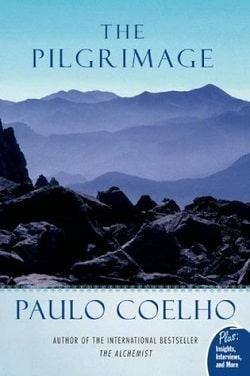Summary

The Pilgrimage
by Paulo Coelho
The Pilgrimage paved the way to Paulo Coehlo's international bestselling novel The Alchemist. In many ways, these two volumes are companions—to truly comprehend one, you must read the other.
Step inside this captivating account of Paulo Coehlo's pilgrimage along the road to Santiago. This fascinating parable explores the need to find one's own path. In the end, we discover that the extraordinary is always found in the ordinary and simple ways of everyday people. Part adventure story, part guide to self-discovery, this compelling tale delivers the perfect combination of enchantment and insight.
.
Read
The Pilgrimage on http://kissnovel.net
Martial Peak Reviews
Paulo Coelho's The Pilgrimage is a profound exploration of the human spirit, a narrative that intertwines adventure with deep philosophical insights. This book, which serves as a precursor to his more famous work, The Alchemist, invites readers on a journey not just through the physical landscape of the Camino de Santiago, but also through the inner landscapes of self-discovery and spiritual awakening.
At its core, The Pilgrimage is a personal account of Coelho's own journey along the Camino, a pilgrimage that has been undertaken by countless seekers of truth and meaning. The narrative is rich with symbolism and allegory, making it a compelling read for anyone interested in the quest for purpose. Coelho's prose is both poetic and accessible, allowing readers to connect with the text on multiple levels. The journey becomes a metaphor for life itself, where every step taken is a step towards understanding oneself and the world around us.
One of the most striking themes in The Pilgrimage is the idea of self-discovery. Coelho emphasizes that the path to enlightenment is not always straightforward; it is often fraught with challenges and obstacles. As the protagonist, who is a representation of Coelho himself, encounters various characters along the way, each interaction serves as a lesson in humility, patience, and the importance of listening to one's inner voice. This theme resonates deeply with readers, as it reflects the universal struggle of finding one's place in the world.
Character development is another significant aspect of the book. Coelho introduces a diverse cast of characters, each embodying different facets of the human experience. From the wise mentor to the skeptical companion, these characters enrich the narrative and provide various perspectives on the pilgrimage. Through their interactions, Coelho illustrates the importance of community and shared experiences in the journey of life. The protagonist's growth is palpable; he evolves from a seeker of external validation to someone who understands that true fulfillment comes from within.
The book also delves into the concept of faith—not just in a religious sense, but as a broader belief in oneself and the universe. Coelho's reflections on faith challenge readers to consider their own beliefs and the role they play in their lives. The pilgrimage serves as a backdrop for these contemplations, allowing readers to witness the transformative power of faith in action. This theme is particularly poignant in today's world, where many grapple with uncertainty and doubt.
Moreover, Coelho's narrative style is infused with a sense of mysticism that elevates the story beyond a mere travelogue. The author weaves in elements of spirituality and the supernatural, suggesting that the journey is not just a physical one but also a spiritual quest. This aspect of the book may remind readers of other works that explore similar themes, such as Eat, Pray, Love by Elizabeth Gilbert or Wild by Cheryl Strayed, where the protagonists embark on journeys that lead to profound personal revelations.
Another noteworthy element of The Pilgrimage is its emphasis on the ordinary. Coelho masterfully illustrates that the extraordinary can often be found in the mundane aspects of life. The pilgrimage itself, while a grand adventure, is filled with simple moments—conversations with fellow travelers, the beauty of nature, and the quiet introspection that comes with walking. This focus on the ordinary serves as a reminder that life’s most significant lessons often come from the simplest experiences.
The impact of The Pilgrimage is profound and lasting. It encourages readers to reflect on their own journeys, both literal and metaphorical. Coelho's insights resonate long after the last page is turned, prompting a reevaluation of personal goals, beliefs, and the paths we choose to follow. The book's universal themes of self-discovery, faith, and the beauty of everyday life make it a timeless read that appeals to a wide audience.
In conclusion, Paulo Coelho's The Pilgrimage is more than just a narrative about a physical journey; it is a rich tapestry of insights that invites readers to embark on their own quests for meaning. With its compelling themes, well-developed characters, and a narrative style that balances adventure with introspection, this book stands as a testament to the power of storytelling. Whether you are a seasoned traveler or someone seeking direction in life, The Pilgrimage offers valuable lessons that resonate deeply within the human experience.
























Reviews 0
Post a Reviews: